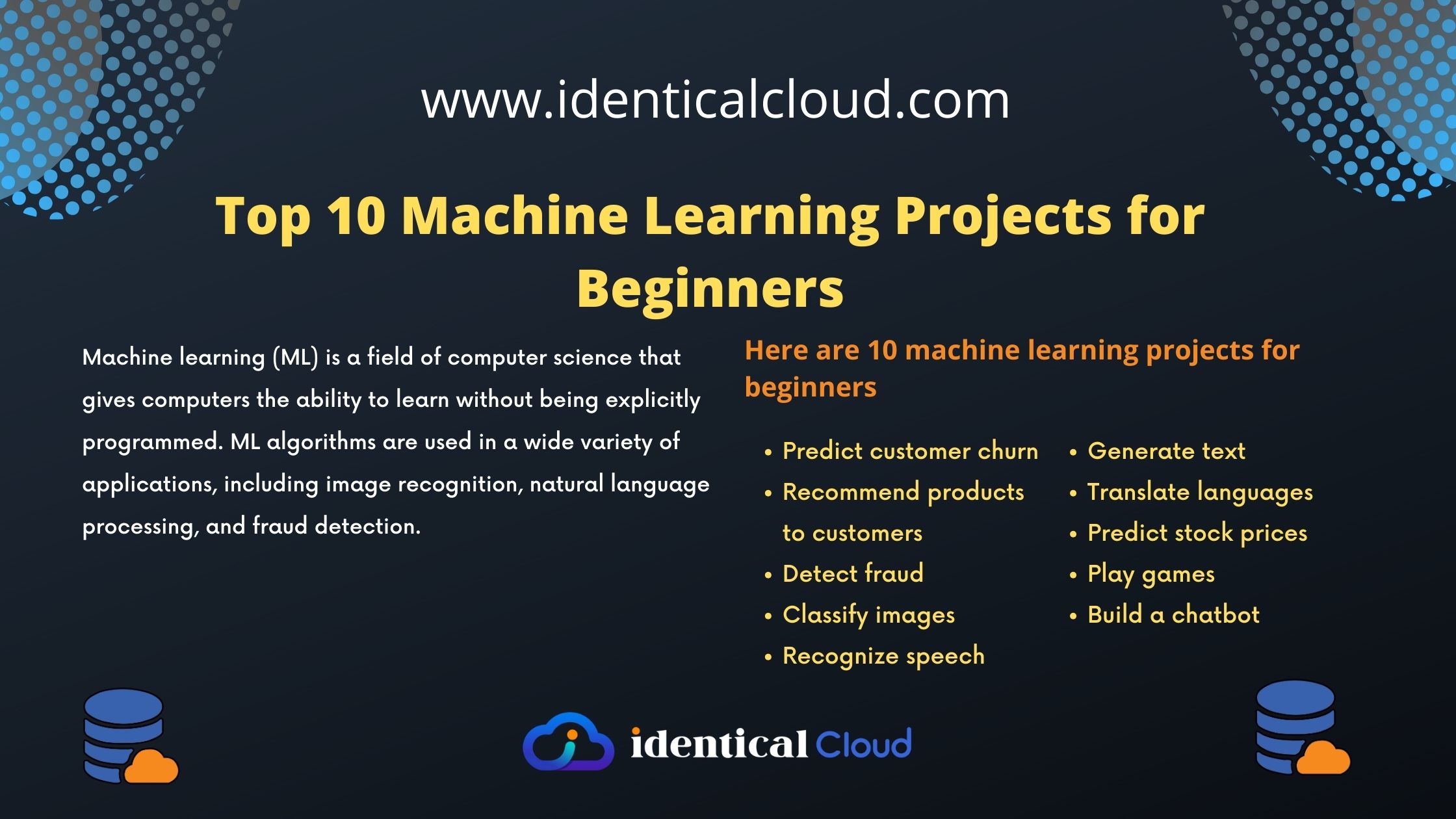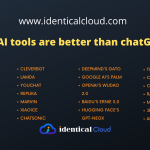5 Programming Languages That Every Developer Should Learn
5 Programming Languages That Every Developer Should Learn
Programming languages are the foundation of software development, and there are a number of different languages that developers need to know in order to be successful.
In the ever-evolving world of software development, mastering the right programming languages is crucial for every aspiring and experienced developer alike. The right choice of languages can significantly impact a developer’s career prospects and productivity.
In this blog, we’ll explore five programming languages that are considered essential for developers to learn. These languages have stood the test of time, demonstrated versatility, and continue to be in high demand across various industries.
Python
Python has emerged as one of the most popular and versatile programming languages in recent years.
Python is a general-purpose programming language that is known for its simplicity and readability. It is a great language for beginners to learn, and it is also used in a wide variety of industries, including web development, data science, and machine learning.
Here are some of the key features of Python:
- Easy to learn and use: Python is a very easy language to learn, even for beginners. The syntax is simple and straightforward, and there are a lot of resources available to help you learn the language.
- Object-oriented: Python is an object-oriented programming language, which means that you can create objects that have properties and methods. This makes it a very powerful language for creating complex applications.
- Interpreted: Python is an interpreted language, which means that it is not compiled into machine code before it is executed. This makes it a very fast language for development, as you can see the results of your code changes immediately.
- Portable: Python is a very portable language, which means that it can be run on many different platforms, including Windows, macOS, and Linux. This makes it a very versatile language for development.
- Free and open-source: Python is a free and open-source language, which means that it is available to everyone for free. This makes it a very accessible language for development.
Python is a powerful and versatile language that is used in a wide variety of industries. If you are looking for a language that is easy to learn, powerful, and portable, then Python is a great choice.
Here are some of the benefits of learning Python:
- High demand: Python is in high demand in the tech industry, so learning Python can give you a competitive edge in the job market.
- Wide range of applications: Python can be used for a wide range of applications, including web development, data science, and machine learning. This means that there are many opportunities to use Python in your career.
- Free and open-source: Python is a free and open-source language, so you can use it for free. This makes it a very accessible language to learn.
- Active community: Python has a large and active community of users and developers. This means that there are many resources available to help you learn Python and troubleshoot problems.
If you are interested in learning Python, there are many resources available to help you get started.Here are a few of the best resources:
- Python Tutorial: The official Python tutorial is a great place to start learning Python. It covers the basics of the language in a clear and concise way.
- Learn Python the Hard Way: This book is a great way to learn Python if you are looking for a more challenging approach. It covers the basics of the language in a very thorough way.
- Automate the Boring Stuff with Python: This book is a great way to learn Python if you are interested in using Python to automate tasks. It covers a variety of topics, including web scraping, file manipulation, and email automation.
- Real Python: This website is a great resource for learning Python. It has a wide range of tutorials and articles covering all aspects of the language.
JavaScript
As the backbone of web development, JavaScript is an essential language for every front-end developer. It allows developers to add interactivity, create dynamic web pages, and build responsive user interfaces. JavaScript has expanded its domain with the advent of Node.js, enabling developers to build server-side applications as well. Along with popular front-end frameworks like React, Angular, and Vue.js, mastering JavaScript is vital for any developer looking to create immersive web experiences.
JavaScript is a high-level, interpreted programming language that is used to create interactive web pages. It is one of the most popular programming languages in the world, and it is used by millions of developers to create web applications, games, and other interactive content.
Here are some of the key features of JavaScript:
- Easy to learn: JavaScript is a relatively easy language to learn, even for beginners. The syntax is simple and straightforward, and there are a lot of resources available to help you learn the language.
- Object-oriented: JavaScript is an object-oriented programming language, which means that you can create objects that have properties and methods. This makes it a very powerful language for creating complex applications.
- Client-side: JavaScript is a client-side scripting language, which means that it is executed on the user’s browser. This makes it a very powerful tool for creating interactive web pages.
- Cross-platform: JavaScript is a cross-platform language, which means that it can be run on different operating systems, such as Windows, macOS, and Linux. This makes it a very versatile language for development.
- Free and open-source: JavaScript is a free and open-source language, which means that it is available to everyone for free. This makes it a very accessible language for development.
JavaScript is a powerful and versatile language that is used in a wide variety of applications. If you are looking for a language that is easy to learn, powerful, and cross-platform, then JavaScript is a great choice.
Here are some of the benefits of learning JavaScript:
- High demand: JavaScript is in high demand in the tech industry, so learning JavaScript can give you a competitive edge in the job market.
- Wide range of applications: JavaScript can be used for a wide range of applications, including web development, games, and mobile applications. This means that there are many opportunities to use JavaScript in your career.
- Free and open-source: JavaScript is a free and open-source language, so you can use it for free. This makes it a very accessible language to learn.
- Active community: JavaScript has a large and active community of users and developers. This means that there are many resources available to help you learn JavaScript and troubleshoot problems.
If you are interested in learning JavaScript, there are many resources available to help you get started. Here are a few of the best resources:
- Mozilla Developer Network (MDN): The MDN is a great resource for learning JavaScript. It has a comprehensive set of tutorials and documentation covering all aspects of the language.
- JavaScript Tutorial: This tutorial is a great place to start learning JavaScript. It covers the basics of the language in a clear and concise way.
- Eloquent JavaScript: This book is a great way to learn JavaScript if you are looking for a more in-depth approach. It covers the basics of the language in a very thorough way.
- JavaScript30: This is a free online course that teaches you JavaScript in 30 days. It is a great way to learn JavaScript if you are looking for a structured and challenging approach.
Java
Java has been a stalwart in the programming world for decades, and it remains one of the most widely used languages in enterprise applications and Android app development. Its “write once, run anywhere” (WORA) capability through the Java Virtual Machine (JVM) enables seamless cross-platform compatibility. Java’s strong emphasis on object-oriented programming (OOP) principles makes it a robust language for building large-scale applications with maintainable codebases.
Here are some of the key features of Java:
- Object-oriented: Java is an object-oriented programming language, which means that it is based on the concept of objects. Objects have properties and methods, and they can interact with each other.
- Platform-independent: Java is a platform-independent language, which means that it can be run on any platform that has a Java Virtual Machine (JVM). This makes it a very versatile language for development.
- Secure: Java is a secure language, and it is used in many security-sensitive applications. This is because Java has a number of built-in security features, such as bytecode verification and sandboxing.
- Robust: Java is a robust language, and it is designed to be fault-tolerant. This means that Java applications can handle errors gracefully, and they will not crash if an error occurs.
- Extensible: Java is an extensible language, and it can be extended with new features and libraries. This makes it a very flexible language for development.
Java is a powerful and versatile language that is used in a wide variety of applications. If you are looking for a language that is object-oriented, platform-independent, secure, and robust, then Java is a great choice.
Here are some of the benefits of learning Java:
- High demand: Java is in high demand in the tech industry, so learning Java can give you a competitive edge in the job market.
- Wide range of applications: Java can be used for a wide range of applications, including web development, mobile development, and desktop applications. This means that there are many opportunities to use Java in your career.
- Platform-independent: Java is a platform-independent language, which means that you can write Java code once and run it anywhere. This makes it a very versatile language for development.
- Open-source: Java is an open-source language, which means that it is free to use and distribute. This makes it a very accessible language to learn.
- Active community: Java has a large and active community of users and developers. This means that there are many resources available to help you learn Java and troubleshoot problems.
If you are interested in learning Java, there are many resources available to help you get started. Here are a few of the best resources:
- Oracle’s Java Tutorial: This tutorial is a great place to start learning Java. It covers the basics of the language in a clear and concise way.
- Head First Java: This book is a great way to learn Java if you are looking for a more in-depth approach. It covers the basics of the language in a very thorough way.
- Java for Complete Beginners: This course is a great way to learn Java if you are looking for a structured and challenging approach.
C#
Developed by Microsoft, C# (C Sharp) is a powerful language primarily used for building applications on the .NET framework. It’s a key player in game development with Unity, as well as in enterprise software and desktop applications. C# shares similarities with Java, making it relatively easier for Java developers to transition to C#. With Microsoft’s continued support and advancements, C# is a valuable language to learn, especially for developers targeting Windows-based applications and the gaming industry.
C# is a general-purpose, multi-paradigm, object-oriented programming language developed by Microsoft in 2002. It is a compiled language, and it is used to create a wide variety of applications, including web applications, mobile applications, and desktop applications.
Here are some of the key features of C#:
- Object-oriented: C# is an object-oriented programming language, which means that it is based on the concept of objects. Objects have properties and methods, and they can interact with each other.
- Strongly typed: C# is a strongly typed language, which means that the data types of variables and expressions are checked at compile time. This helps to prevent errors and makes C# a very reliable language.
- Garbage collected: C# is a garbage-collected language, which means that the memory used by objects is automatically reclaimed when the objects are no longer needed. This makes C# a very easy language to use, and it eliminates the need for manual memory management.
- Platform-independent: C# is a platform-independent language, which means that it can be run on any platform that has a .NET Framework. This makes it a very versatile language for development.
- Open-source: C# is an open-source language, which means that it is free to use and distribute. This makes it a very accessible language to learn.
- Active community: C# has a large and active community of users and developers. This means that there are many resources available to help you learn C# and troubleshoot problems.
C# is a powerful and versatile language that is used in a wide variety of applications. If you are looking for a language that is object-oriented, strongly typed, garbage-collected, platform-independent, and open-source, then C# is a great choice.
Here are some of the benefits of learning C#:
- High demand: C# is in high demand in the tech industry, so learning C# can give you a competitive edge in the job market.
- Wide range of applications: C# can be used for a wide range of applications, including web development, mobile development, and desktop applications. This means that there are many opportunities to use C# in your career.
- Platform-independent: C# is a platform-independent language, which means that you can write C# code once and run it anywhere. This makes it a very versatile language for development.
- Open-source: C# is an open-source language, which means that it is free to use and distribute. This makes it a very accessible language to learn.
- Active community: C# has a large and active community of users and developers. This means that there are many resources available to help you learn C# and troubleshoot problems.
If you are interested in learning C#, there are many resources available to help you get started. Here are a few of the best resources:
- Microsoft’s C# Tutorial: This tutorial is a great place to start learning C#. It covers the basics of the language in a clear and concise way.
- Head First C#: This book is a great way to learn C# if you are looking for a more in-depth approach. It covers the basics of the language in a very thorough way.
- C# for Beginners: This course is a great way to learn C# if you are looking for a structured and challenging approach.
SQL
SQL (pronounced “sequel”) stands for Structured Query Language. It is a language used to manage data in relational database management systems (RDBMS). SQL statements are used to perform tasks such as create, read, update, and delete data in a database.
Here are some of the key features of SQL:
- Data definition: SQL can be used to create, alter, and drop tables, views, and other database objects.
- Data manipulation: SQL can be used to insert, update, delete, and select data from tables.
- Data retrieval: SQL can be used to retrieve data from tables and views.
- Data constraints: SQL can be used to define constraints on data, such as unique values and foreign keys.
- Transactions: SQL can be used to perform transactions, which are a series of operations that are either all committed or all rolled back.
SQL is a powerful and versatile language that is used in a wide variety of applications. If you are looking for a language that can be used to manage data in a relational database, then SQL is a great choice.
Here are some of the benefits of learning SQL:
- High demand: SQL is in high demand in the tech industry, so learning SQL can give you a competitive edge in the job market.
- Wide range of applications: SQL can be used for a wide range of applications, including web development, data analysis, and business intelligence. This means that there are many opportunities to use SQL in your career.
- Easy to learn: SQL is a relatively easy language to learn, even for beginners. The syntax is simple and straightforward, and there are a lot of resources available to help you learn the language.
- Open-source: SQL is an open-source language, which means that it is free to use and distribute. This makes it a very accessible language to learn.
- Active community: SQL has a large and active community of users and developers. This means that there are many resources available to help you learn SQL and troubleshoot problems.
If you are interested in learning SQL, there are many resources available to help you get started. Here are a few of the best resources:
- SQL Tutorial: This tutorial is a great place to start learning SQL. It covers the basics of the language in a clear and concise way.
- SQLZoo: This website is a great resource for learning SQL. It has a variety of interactive exercises that help you learn the language.
- The Complete SQL Bootcamp: This course is a great way to learn SQL if you are looking for a structured and challenging approach.
These are just a few of the many programming languages that are available. The best language for you to learn will depend on your interests and career goals. However, the languages listed above are all good choices for any developer who wants to be successful in the field.
Aspiring and experienced developers must stay updated with the latest trends in programming languages to remain competitive and relevant in the ever-changing tech landscape. The five programming languages mentioned in this blog—Python, JavaScript, Java, C#, and SQL—offer a strong foundation and open the door to a multitude of opportunities in web development, mobile app development, data science, AI, and more.
While these languages are essential to learn, developers should remember that languages are tools, and proficiency in multiple languages enhances problem-solving abilities. Additionally, as technology advances, new languages and frameworks may emerge, so staying curious and adaptable is equally crucial. By investing time and effort into mastering these essential languages, developers can position themselves for success and open up a world of possibilities in the vast realm of software development.








